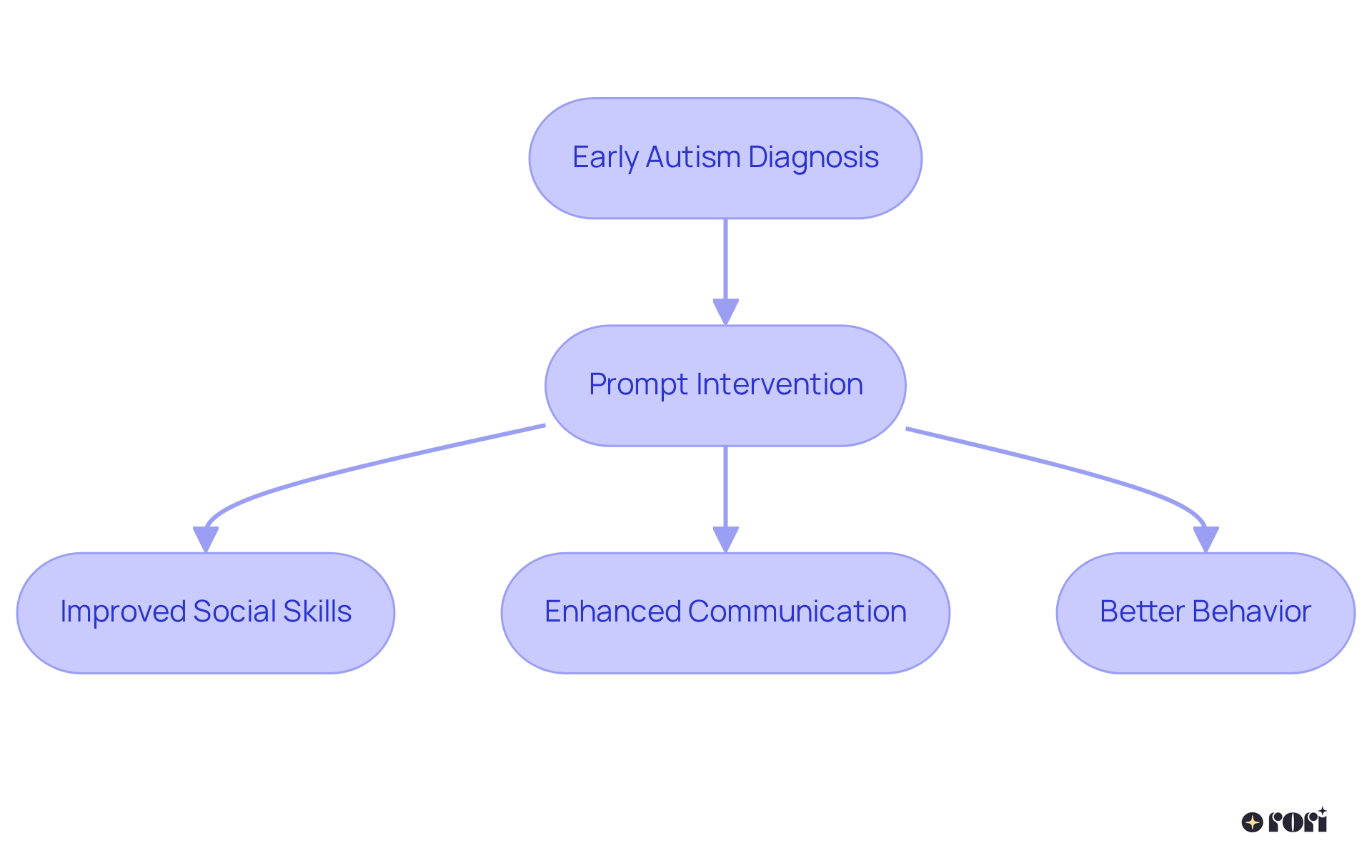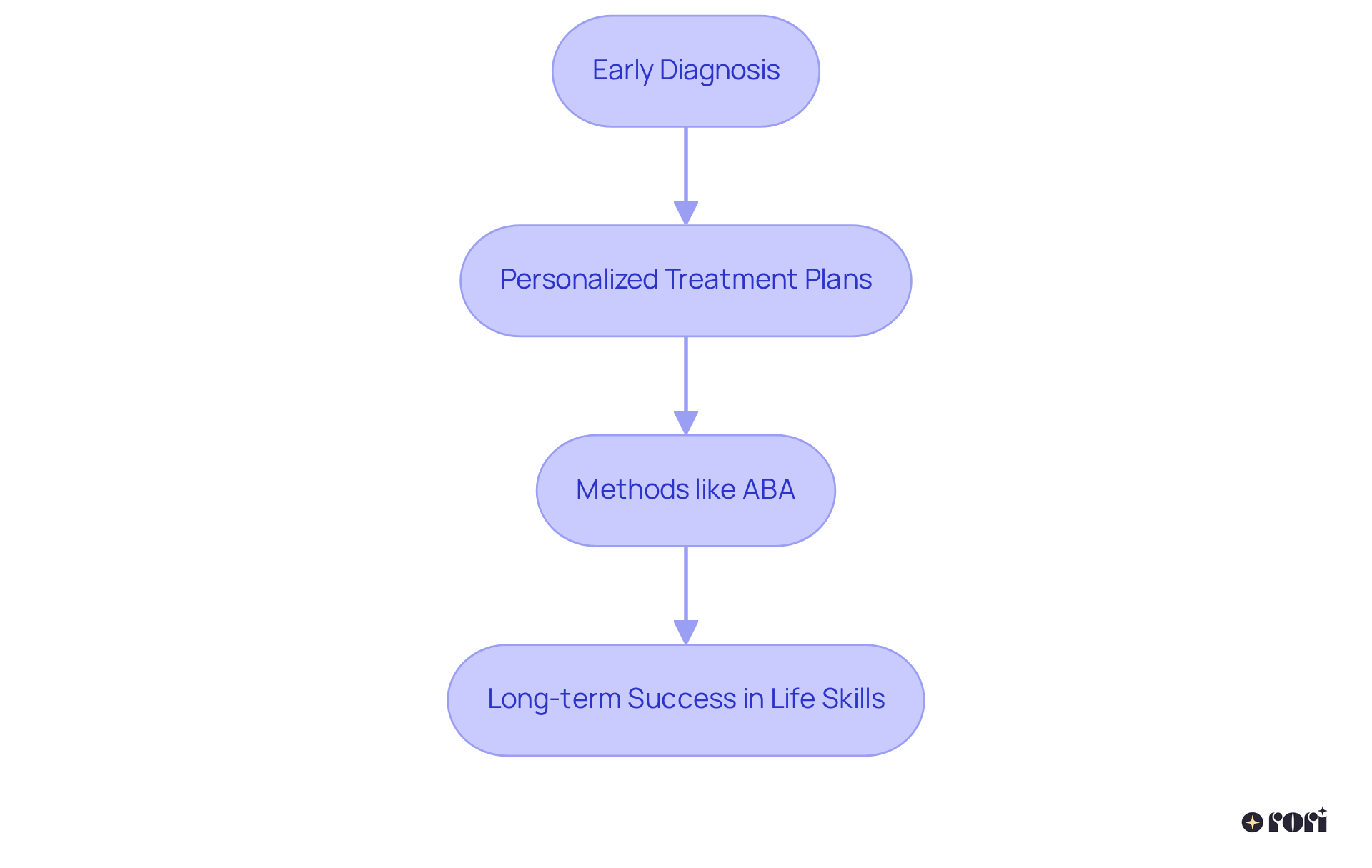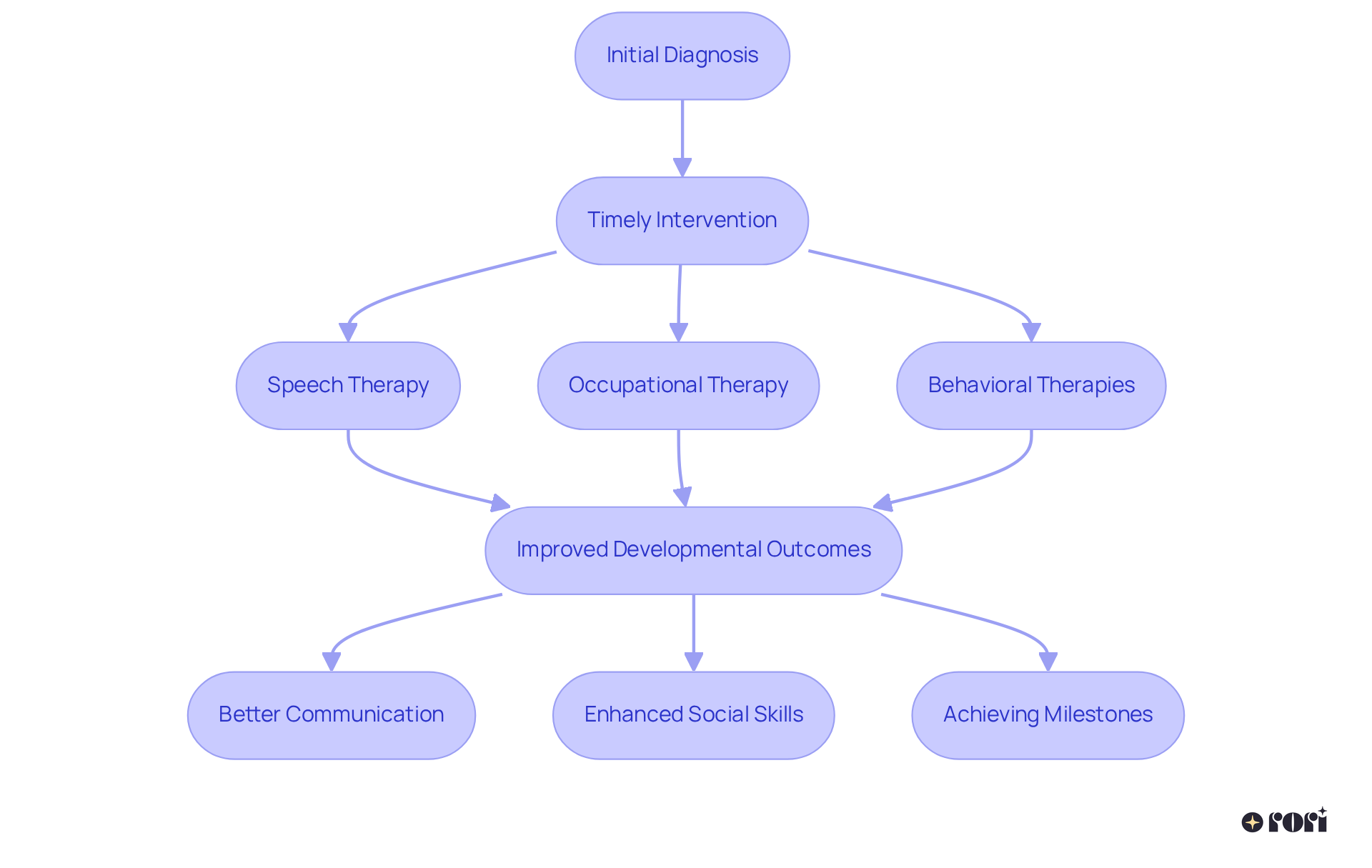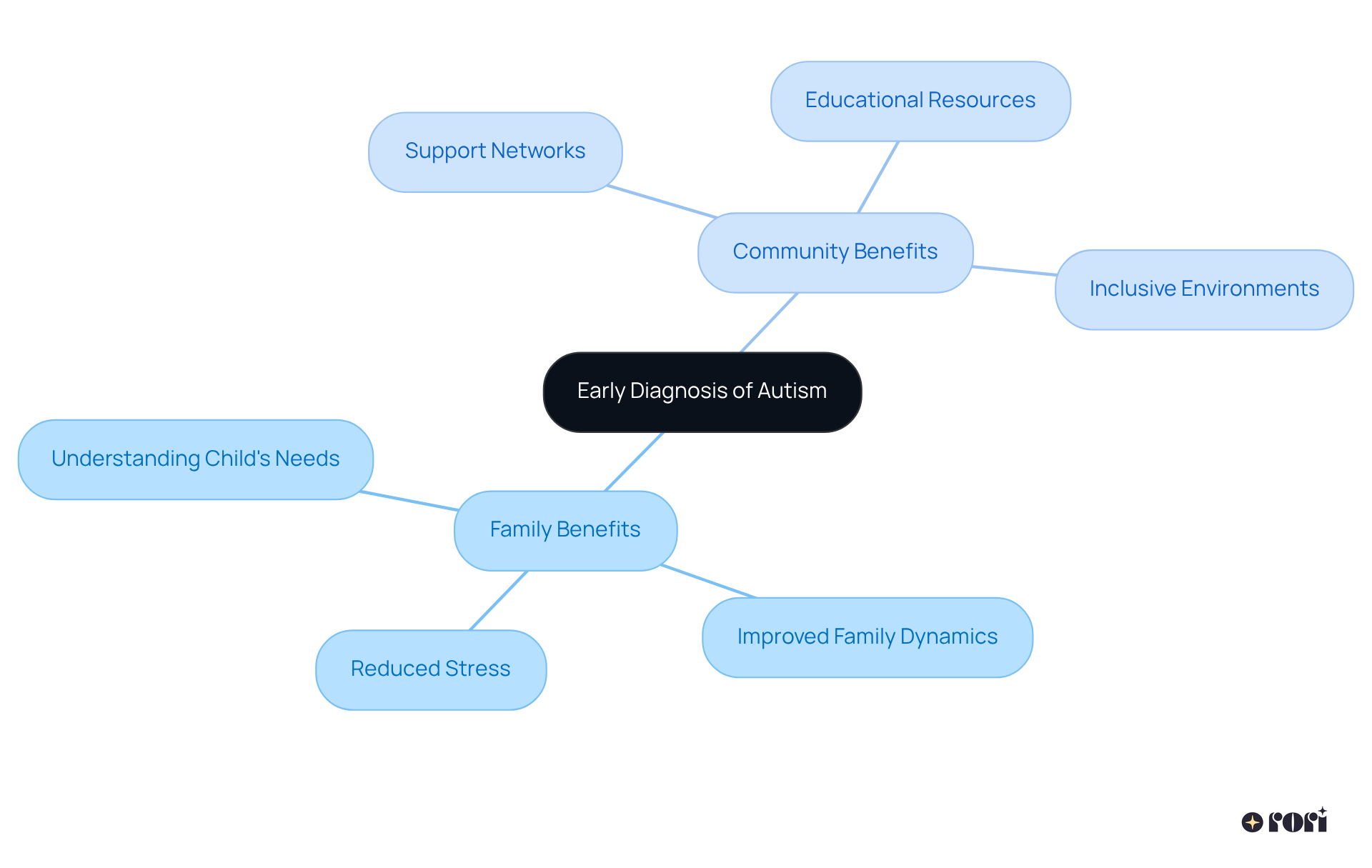Mild autism can actually be curable when caught early! 🌟 Timely interventions make a huge difference in communication, social skills, and behavior development. When parents recognize the signs early, it opens the door to personalized treatment strategies that really harness the brain's amazing neuroplasticity during childhood. This can lead to long-term success and a better quality of life for both individuals and their families.
Imagine being able to tailor support to fit your child's unique needs! Early diagnosis not only helps in crafting these strategies but also creates a sense of hope and possibility. We’re here to help you every step of the way! Let’s explore this together and see how early intervention can truly make a difference.
Recognizing autism early can truly transform the developmental journey for children. It opens up a world of resources and support that can lead to remarkable improvements in their social and communication skills. Early intervention not only empowers families but also lays the groundwork for long-term success in various life domains.
But here’s the big question: how can parents effectively navigate the complexities of early diagnosis and intervention to ensure their child thrives? Let’s explore this together! It’s a journey filled with challenges, but you’re not alone. Many parents have walked this path and found ways to advocate for their children, and with the right support, you can too!
Early identification of autism is so important! It opens the door for prompt intervention, which can significantly enhance a young person's developmental journey. Research shows that kids diagnosed before the age of 2.5 years often experience amazing improvements in their social skills, communication, and behavior. By recognizing the signs of autism early, families can access vital resources and support systems, creating a nurturing environment for their little one. The Autism Care Specialist emphasizes that quick identification not only helps the young individual but also empowers families to take proactive steps on their developmental path. Let’s explore this together!

The link between getting an early diagnosis and effective treatment strategies is so important in autism care. When a young person is identified quickly, healthcare professionals can develop personalized treatment plans that cater to their unique needs. For instance, starting methods like Applied Behavior Analysis (ABA) earlier allows for a more structured approach to behavior modification and skill development.
The Autism Care Specialist points out that this initial support doesn’t just tackle immediate challenges; it also lays the groundwork for long-term success. This helps youngsters thrive in various aspects of life, including social interactions and academic performance.
Let’s explore this together!

Taking prompt action after an initial diagnosis can really make a difference in the developmental journey for kids, especially considering that mild autism is curable. Research shows that for children with mild autism, early support services—like speech therapy, occupational therapy, and behavioral therapies—demonstrate that mild autism is curable and often lead to significant improvements in their communication, social skills, and everyday behaviors. 🌟 The Autism Care Specialist highlights that during childhood, the brain is incredibly adaptable due to neuroplasticity, making this the perfect time for intervention, particularly because mild autism is curable. As a result, kids who receive that early help are more likely to hit important developmental milestones and thrive in school settings, particularly because mild autism is curable.
So, if you're a parent navigating this path, remember that you’re not alone! Seeking out those initial services can pave the way for your child’s success. Let's explore this together and find the best resources for your family!

The consequences of identifying autism early go beyond just the individual; they touch families and communities too. Families who get prompt assessments are often better equipped to understand their child's needs and find the right resources. This can lead to improved family dynamics and less stress. 🌟
But it doesn't stop there! Early identification can really boost community support networks, like parent groups and educational resources. This, in turn, enhances the overall quality of life for families affected by autism. The Autism Care Specialist highlights that when communities prioritize early diagnosis and intervention, they create inclusive environments that benefit everyone. Ultimately, this leads to a more supportive society for individuals with autism.
Let’s explore this together! By fostering connections and understanding, we can make a real difference in our communities.

Recognizing the significance of early diagnosis in mild autism is crucial for unlocking a child's potential and ensuring a supportive environment for their development. By identifying autism at an early stage, families can access timely interventions that not only address immediate challenges but also lay a solid foundation for long-term success. Early diagnosis isn't just a benefit for the child; it’s a transformative opportunity for families and communities alike.
The insights shared throughout the article highlight the profound impact of early intervention strategies, like personalized treatment plans and various therapeutic services. Research shows that children diagnosed before the age of 2.5 years experience remarkable improvements in social skills, communication, and behavior. These early interventions tap into the brain's neuroplasticity, making it an optimal time for support, especially since mild autism is often curable. Plus, the positive ripple effects extend beyond individual families, enhancing community support systems and fostering inclusive environments.
Ultimately, prioritizing early diagnosis and intervention can lead to a brighter future not only for children with autism but also for their families and communities. The call to action is clear: by recognizing the signs early and seeking out the necessary resources, families can significantly improve developmental outcomes and contribute to a more supportive society for individuals with autism. Let’s embrace this proactive approach together, creating a world where every child can thrive!
Why is early diagnosis of autism important?
Early diagnosis of autism is crucial because it allows for prompt intervention, which can significantly improve a young person's developmental journey.
What age is considered optimal for diagnosing autism?
Research indicates that children diagnosed before the age of 2.5 years often experience remarkable improvements in their social skills, communication, and behavior.
How does early identification benefit families?
Early identification helps families access vital resources and support systems, creating a nurturing environment for their child.
What role does the Autism Care Specialist play in early diagnosis?
The Autism Care Specialist emphasizes that quick identification not only benefits the young individual but also empowers families to take proactive steps in their developmental journey.